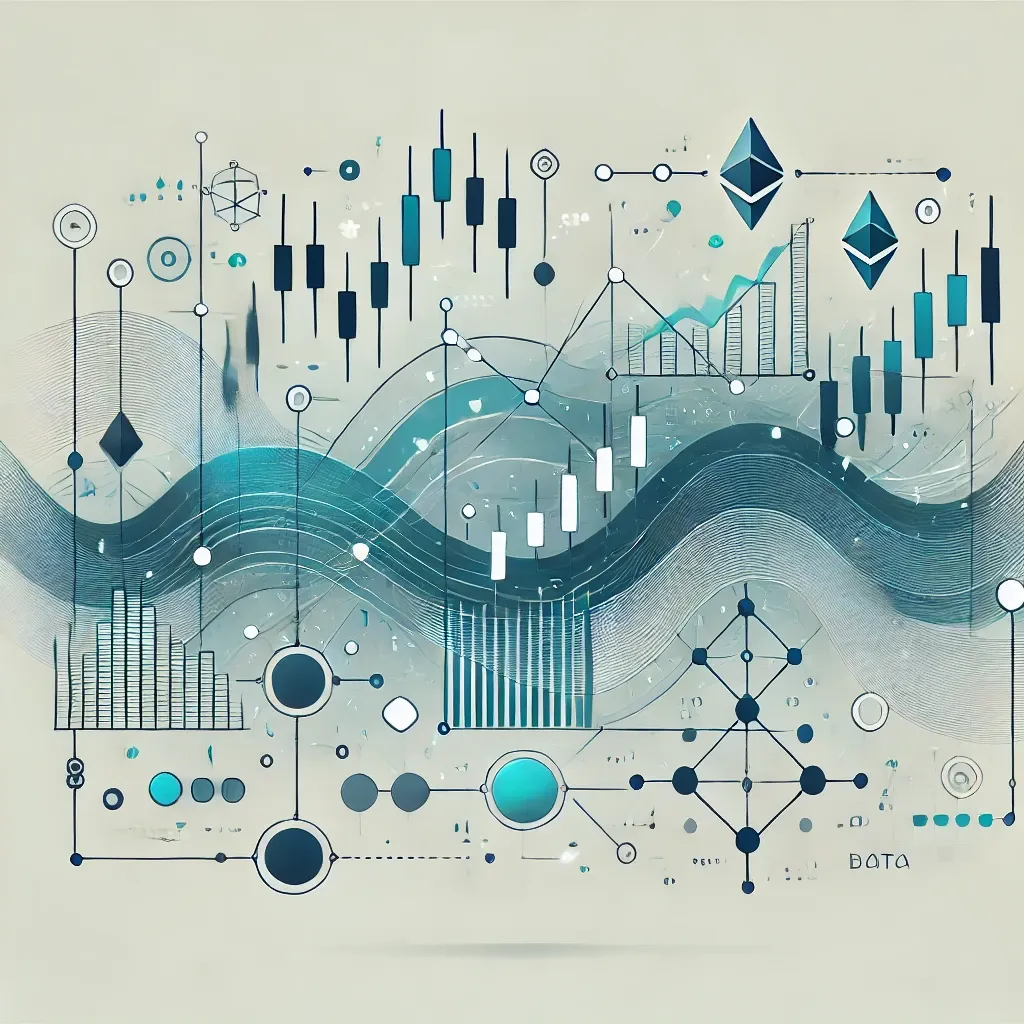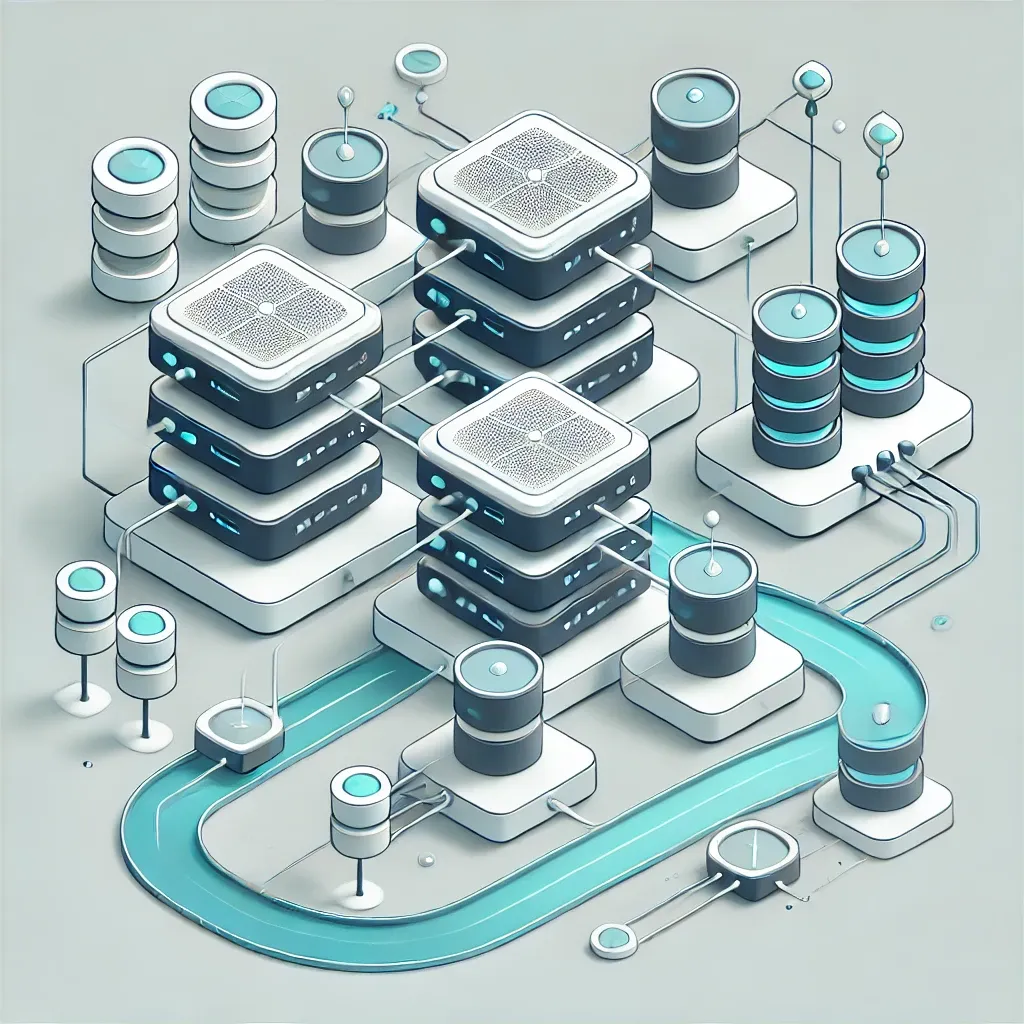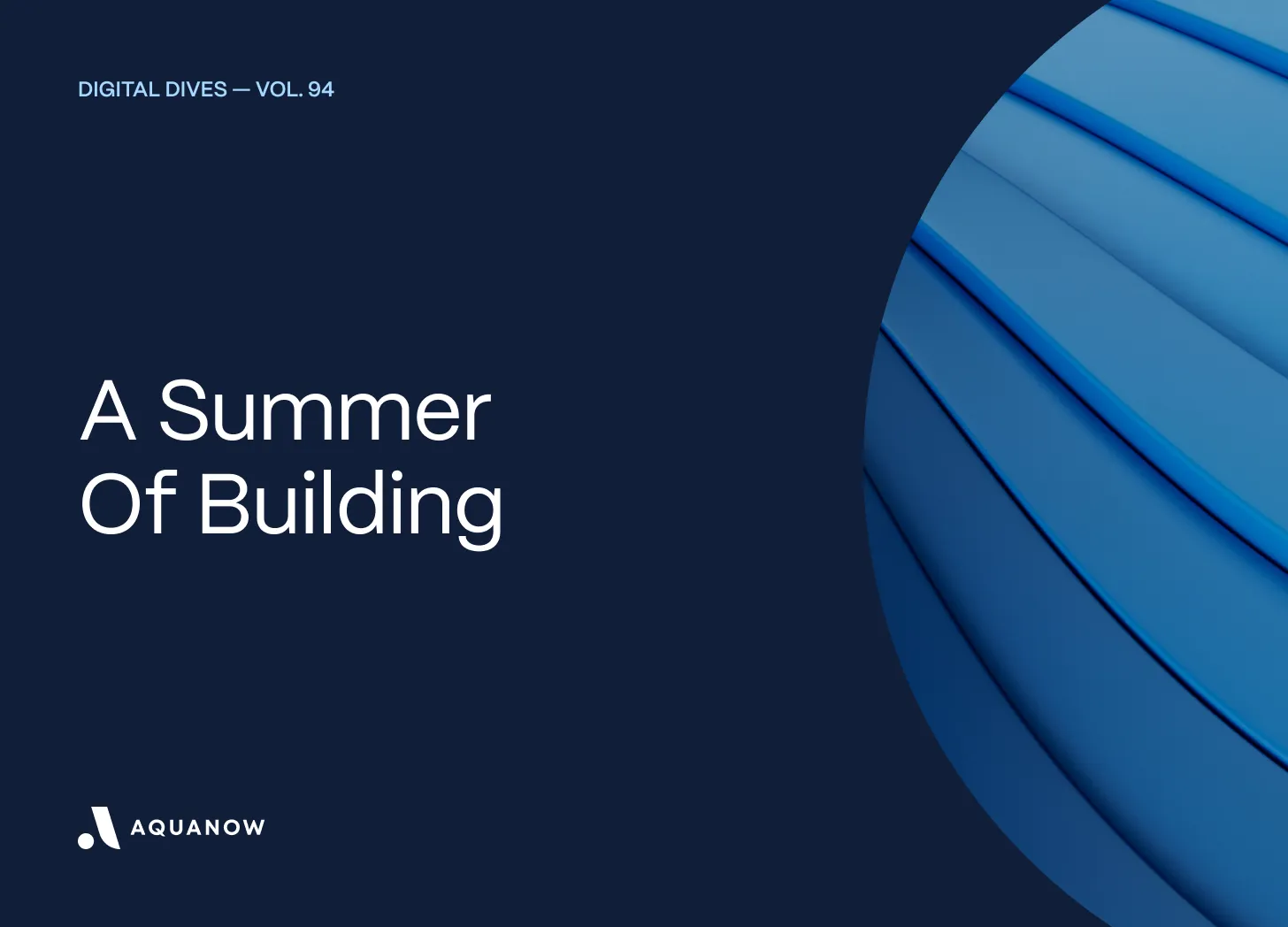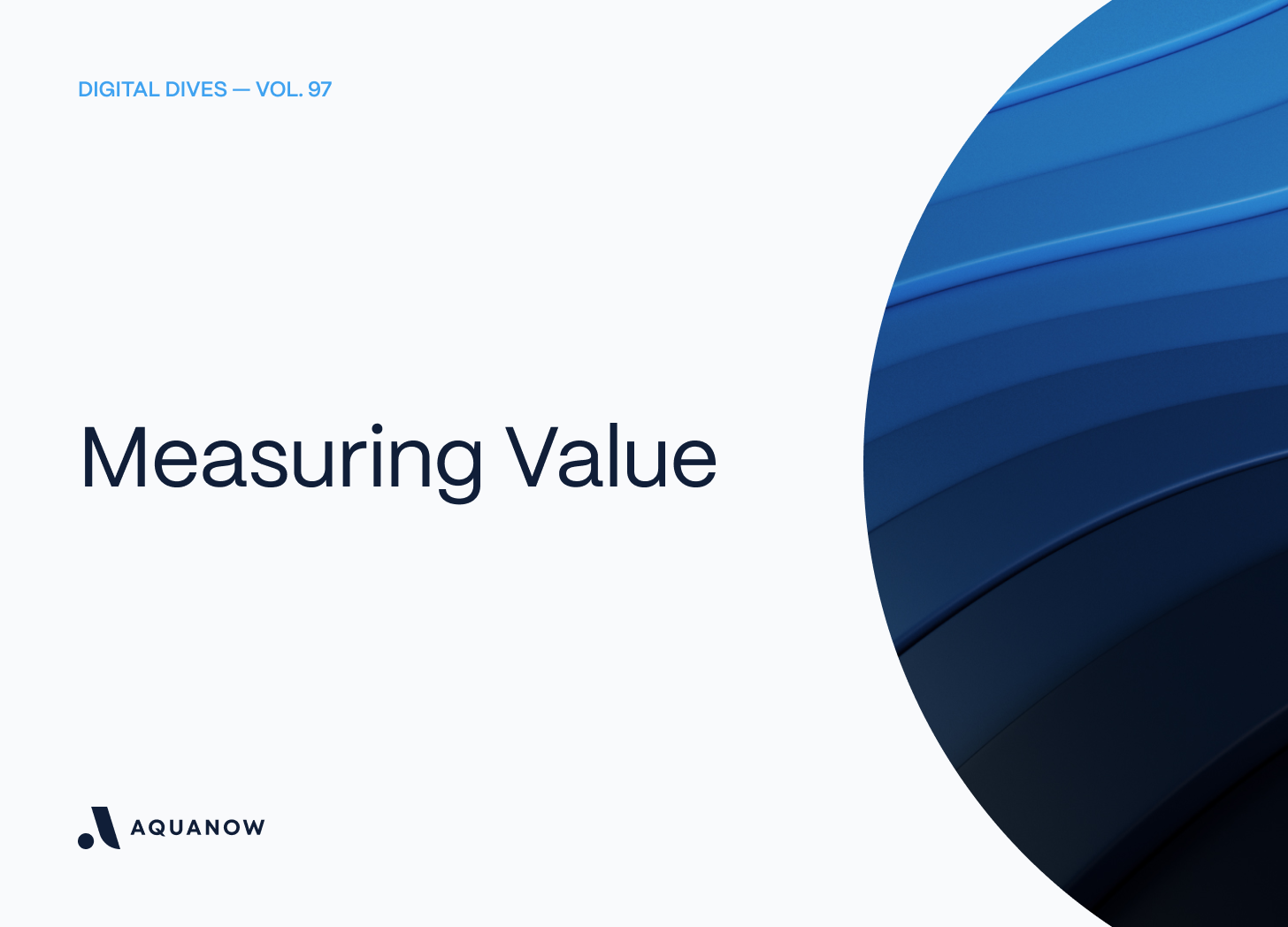This edition of Aquanow’s Digital Dives breaks from our usual market analysis and thematic explorations to reflect on something equally valuable to our industry's future: the development of new talent and perspectives. For the first time since joining Aquanow, I had the opportunity to work directly with a group of interns on the investing and markets side of our business. What began as a straightforward mentorship arrangement quickly evolved into something far more symbiotic and enlightening than I had anticipated.I’ve always believed that teaching helps deepen my own understanding of subjects. This summer proved that true. Working with curious minds on the complexities of digital asset markets while building practical tools together made for a dynamic learning experience. The mix of traditional finance, crypto innovation, and entrepreneurial culture created a setting that was both challenging and rewarding.

Aquanow as a Learning Ground
What makes an internship here distinctive isn't just the technical skills acquired or the projects completed. The immersive context in which these experiences unfold while the team is busy building and adapting to a dynamic landscape means that even newcomers are often juggling multiple priorities. On any given day, our interns might find themselves in conversations that traverse finance, technology, compliance, and market structure. This isn't intentional but rather a reflection of how our business operates at the nexus of multiple disciplines.
Consider a math student who can reason their way through logic suddenly needing to ramp up on the basics of futures markets and securities pricing, before moving on to the intricacies of the novel perpetual futures contracts and exchange fee structures to model how a P&L might evolve. Then layer on the realities of API limitations, inconsistent data quality, and the practical considerations of working with live market feeds, all before the real analysis can even begin.
Unlike traditional financial institutions where departments often function as silos, or pure technology companies where business considerations might seem distant from day-to-day coding, Aquanow operates as an ecosystem where these elements constantly interact. For interns, this means they're not just learning discrete skills, they're absorbing how different domains of knowledge connect and influence each other in real time.
The value of this approach became evident as I watched our interns evolve from asking basic definitional questions to engaging in nuanced discussions about market structure and even suggesting opportunities. They have begun to develop a contextual framework for understanding the complex and interconnected systems in which we operate.
What They Built
The projects our interns tackled this summer required genuine creativity and problem-solving and have laid the foundation for actual contributions that we’ll use in our business. Their work broadly fell into three categories that reflect the multifaceted nature of our operations.
Markets & Models
Several recruits dove deep into the mechanics of crypto derivatives markets, building models that helped us better understand and predict funding rate behaviors. One instance involved creating a tool that analyzes the relationship between dated futures on the Chicago Mercantile Exchange and perpetual swap funding rates of more crypto-native venues. This is part of a larger piece of quantitative research that requires a first-principles approach and it was facilitated through our exploration with the interns.
“I came in with three years of applied math but no finance background,” reflected Mehreyar Haq, a University of Toronto student who contributed to the project. “Learning the mechanics of perpetual futures and seeing how basis trades actually behave in volatile markets gave me a completely new perspective. I’m not just working through abstract formulas anymore, I’m starting to understand the forces that drive these instruments.”
Mehreyar worked with Max Wu, an MBA intern from the University of Victoria, to develop a real-time open interest tracker that helped our team visualize positioning across major exchanges. What began as a data collection exercise evolved into a sophisticated tool for identifying potential market dislocations and liquidation risks. The process taught him not just about data visualization, but about how market structure influences price action, a lesson that transcends any single asset class.

Automation & Analytics
The intersection of programming and financial analysis proved to be fertile ground for innovation. Jack Kehoe, a second year Waterloo math student, helped write scripts that automated parts of our pricing analysis, turning what had been a manual daily process into a streamlined system that freed up valuable time for our operations team.
"I expected to be writing code in isolation," he noted, "but I ended up collaborating with people across the company to understand what information was most valuable and how to present it in the most actionable way. The technical challenge wasn't just about making something work, it was about making something useful."
Another project involved using SQL and Google Sheets integrations to build dashboards that tracked transaction patterns across different client segments. This required not only technical skill but a developing intuition about what metrics actually matter in Aquanow’s business. The intern who built this system remarked that they "learned more about data analysis by trying to solve real business questions than in any classroom."
Tools for the Team
Perhaps most gratifying were the projects that made an immediate impact on our daily operations. One recruit built a Telegram price bot that delivers real-time market data to Aquanow Markets’ OTC traders, helping them respond to client inquiries more quickly. Max took the initiative to create a comprehensive Notion page to streamline onboarding for new team members, capturing the questions he encountered while navigating his own placement.
"There's something satisfying about building a tool and seeing people actually using it," Jack observed. "The feedback loop is immediate. It’s really cool."

The Experience of Being Here
What consistently emerged in conversations with our interns was how different the experience felt from their expectations. Many arrived with preconceptions about what working in crypto would entail, only to discover an environment that defied easy categorization.
"I expected either a traditional finance atmosphere or a typical tech startup vibe," Max reflected, "but Aquanow feels like something else entirely. It’s a place where people are just as comfortable discussing risk management frameworks as they are chatting about meme coins."
Mehreyar noted that the learning curve was simultaneously steeper and more navigable than anticipated: "I went from knowing almost nothing about crypto to confidently explaining perpetual futures to friends within weeks. I wasn't just absorbing information, I’m actually beginning to develop a framework for thinking about markets."
The autonomy granted to interns was frequently cited as both challenging and rewarding. "I was given real responsibility from day one," Jack remarked. "There was guidance available when I needed it, but also an expectation that I would figure things out independently. That trust is motivating."
Why It Matters
The breadth and depth of these internship experiences matter for reasons that extend beyond individual skill development. For the recruits themselves, this immersion (hopefully) provides something more valuable than subject knowledge. We hope they return to school with a mental latticework of how markets function as integrated systems, not just as collections of isolated concepts.
This holistic perspective is increasingly critical in an industry like digital assets where technological innovation, financial engineering, and regulatory considerations are inextricably linked. The professionals who will thrive in this space aren't those with narrow expertise in a single domain, but those who can navigate the intersections between disciplines and anticipate how changes in one area will ripple through others.
For Aquanow, these programs are a source of fresh perspectives and intellectual energy. The questions interns ask often challenge our assumptions and push us to articulate the reasoning behind our approaches. Their projects frequently reveal new efficiencies or capabilities we hadn't previously prioritized. And their enthusiasm reminds us of the fundamental innovation that continues to make this industry so compelling.

Building the Future Together
As this season of learning and collaboration winds down, I find myself reflecting on how much we've built together in a relatively short time. Beyond the models, tools, and analyses, we've constructed something less tangible but equally important. We’re incubating a community of learning that spans experience levels and specializations.
To our interns: thank you for your curiosity, your diligence, and your willingness to venture into unfamiliar territory. The tools you've built will continue to serve our team, and the perspectives you've shared have enriched our understanding of our own business.
Everyone in this still-nascent industry began as someone bold enough to dive in and start learning. Tomorrow’s builders are growing by asking fundamental questions, challenging established practices, and developing the tools that will define the financial landscape ahead. If this summer is any indication, that future is in capable hands.


.png)


